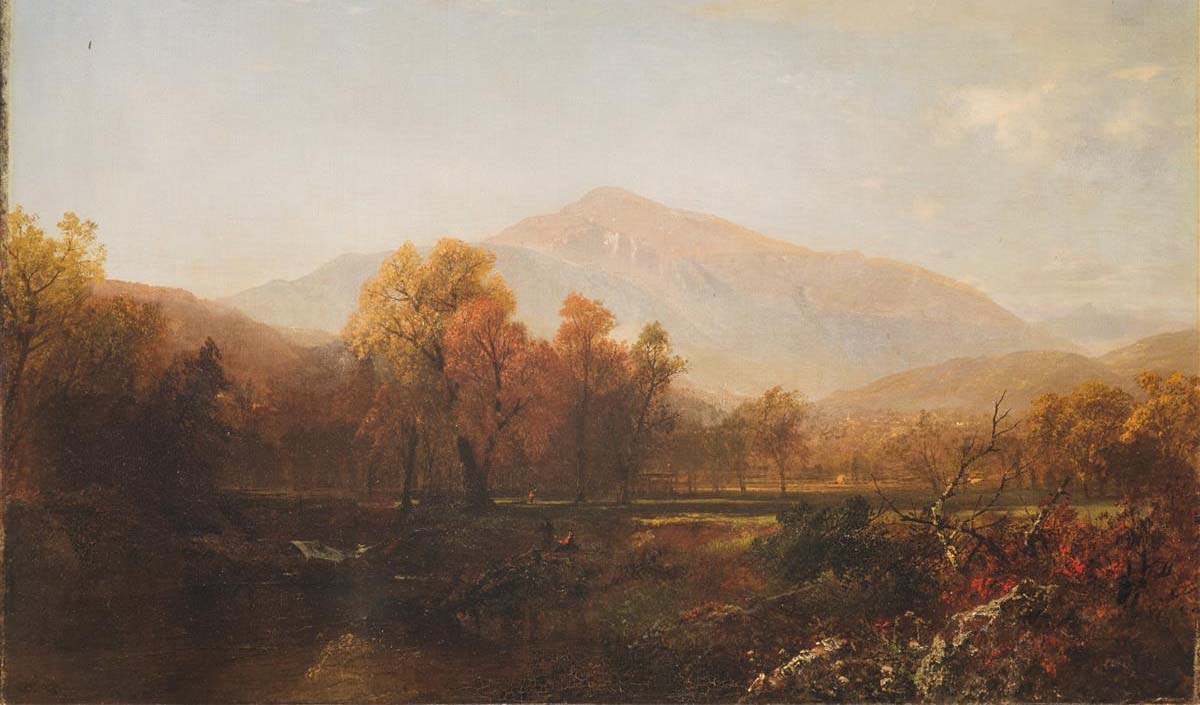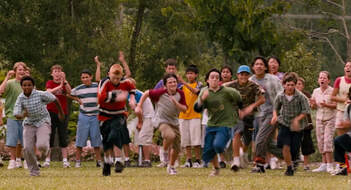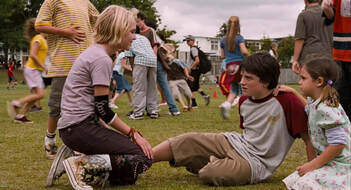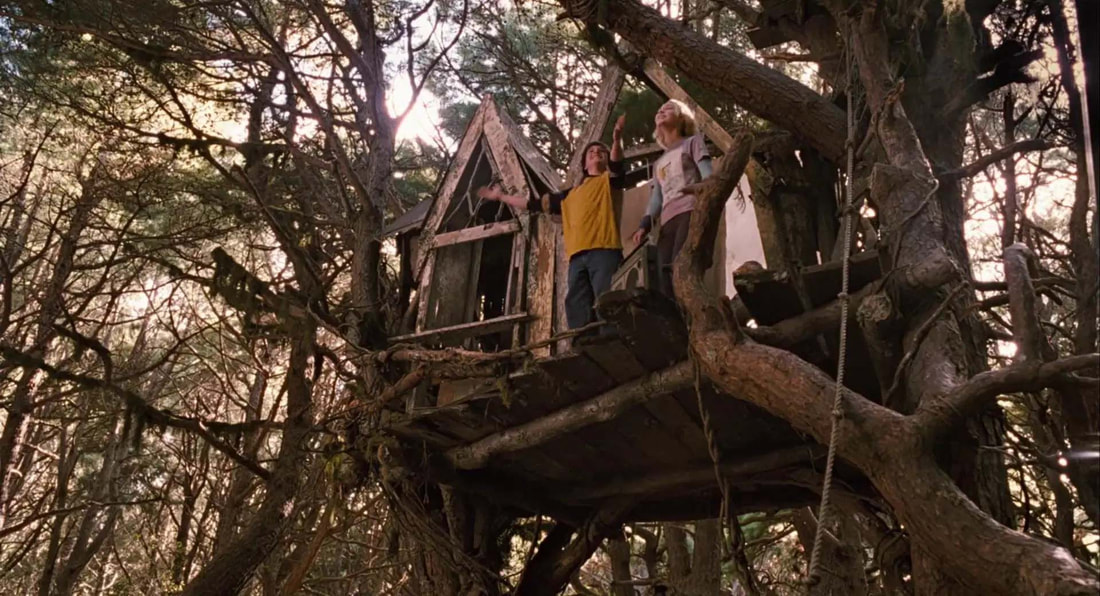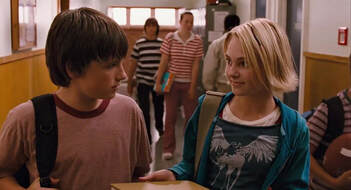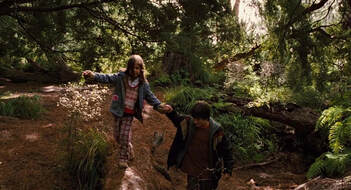|
When I was in grade five life was simpler. In math we learned about place value and had to memorize the difference between hundreds and hundredths. We read The Lion, the Witch and the Wardrobe chapter by chapter and I got my mom to help me with the homework questions. We had lockers, but they didn’t have locks. My biggest worry was about improving my French pronunciation. And recess was all about four square. My classmates and I drew the lines in chalk every day—so often that the school eventually decided to paint permanent lines on the pavement. We thought that being the king of four square was the most important thing ever. But before we knew it four square was out. We had moved on to other things. Another year grounders was the big thing and another year it was chess. Some things we thought would last forever ended up being relatively short-lived in the grand scheme of things. But that can be hard to foresee, especially when we’re young. Just consider fifth grader Jesse Aarons from the novel Bridge to Terabithia by Katherine Paterson. In Jesse’s little world success means being the fastest runner in his class. With that one goal in mind he trains hard for the whole summer, waking up first thing to go running. He comes back all sweaty from his morning runs just in time to milk Miss Bessie the cow. His sisters complain about him smelling bad after his runs, but that doesn’t bother Jesse too much. Better to be known as the runner than as the “crazy little kid that draws all the time.” Jesse Aarons, or Jess as people call him, returns to Lark Creek Elementary after the summer break expecting things to go his way. He imagines himself running across the finish line to the cheers and applause of his fans. His little sister May Belle will celebrate him as the winner. His classmates won’t pick on him for sketching all the time. And his dad will forget about work and spend time with him like the good old days. He’s going to make everyone so proud. After all, being the fastest kid in grade five is a pretty big deal. But things don’t go as planned. As the race begins Jess launches forward, surging to the front of the pack. He resists the urge to look behind him. He keeps his eyes fixed on the approaching finish line. He’s going to win. Everything is going perfectly, until it isn’t. Out of the corner of his eye he spots someone catching up to him, then zipping past him. Jess pushes himself harder, but can’t keep up. And just like that, he loses to Leslie, the new girl. Leslie Burke is not your average fifth grade girl. With her strange clothes (faded cut-off jeans and sneakers without socks) and her odd-looking lunch from home (yogurt of all things), Leslie begins to shake things up. Her classmates are soon shocked to discover that she doesn’t own a TV. But the most earthshattering revelation is that she can run. Her victory puts all the boys to shame. And wouldn’t you know it, all of a sudden everybody starts thinking that maybe being the fastest runner in the fifth grade isn’t such a big deal after all. Pretty soon running is old news and the boys go off to pursue other recess games. Jess moves on too. At first Jess is tempted to do the same as the boys and tries to ignore Leslie on the school bus. Still, she recognizes something in him he cannot see himself. And she sees him as someone to whom she could offer the hand of friendship. And so one day it happens. In music class, while Miss Edmunds is leading the students in singing a tune, Jess makes his choice: Caught in the pure delight of it, Jess turned and his eyes met Leslie's. He smiled at her. What the heck? There wasn't any reason he couldn't. What was he scared of anyhow? Lord. Sometimes he acted like the original yellow-bellied sapsucker. He nodded and smiled again. She smiled back. He felt there in the teacher’s room that it was the beginning of a new season in his life, and he chose deliberately to make it so. He did not have to make any announcement to Leslie that he had changed his mind about her. She already knew it. And just like that Jess steps into a new season in life. His friendship with Leslie takes him on something of a whirlwind. He hits the ground running, trying to catch up with this girl whose writing comes to life, whose imagination knows no bounds, whose eyes seem lit by some transcendent spark. Together Jess and Leslie dream up the fantastical kingdom of Terabithia, over which the two of them reign as king and queen. Even Leslie’s dog gets to be Prince Terrian. They play their game out in the backwoods on the far side of a creek. Before long Jess has a new spring in his step. He wakes up “every morning with something to look forward to. Leslie was more than his friend. She was his other, more exciting self—his way to Terabithia and all the worlds beyond.” And all because he makes a choice. Jess says yes to the adventure of being Leslie’s friend. It’s almost like Jess is Leslie’s apprentice going through a season of training. Leslie helps Jess to go deeper, to continue his drawings, to experience “the poetry of the trees” with new eyes, to step forward into the unknown despite his fears. Stepping into a new world can be scary, you know. On one stormy occasion Leslie and Jess enter a thick grove of pines that is eerily quiet. Jess gets chills, thinking the growth might be haunted, but Leslie’s quiet confidence never falters. Feeling ashamed of himself, Jess thinks he’s “obviously not worthy to be king of Terabithia. Whoever heard of a king who was scared of tall trees and a little bit of water?” But here’s a secret for new kings to understand. Everyone has fears, even the greatest among us. It’s just that kings, good kings that is, don’t give themselves the option of running from them. Jess learns to stretch himself, to face his fears and insecurities with Leslie at his side. Terabithia becomes his training ground, the place where he gains the confidence to deal with the bullies at school and the challenges at home. He feels “taller and stronger and wiser in that mysterious land.” It’s in that place that something comes alive inside him. He gets a vision of who he is, and who he could grow to be. His self-doubt is still there, yes, but he learns to act in spite of it. And then it all comes crashing down. (Here come the spoilers). On one particularly rainy day Leslie goes to the land of Terabithia by herself. She takes hold of the rope swing, hoping to swing across the flooded creek into Terabithia. Jess comes home from an outing, expecting everything to continue as normal, but finds his family in chaos. He hears that his friend Leslie is dead. The rope swing broke. When Leslie tried to swing across, she hit her head and drowned. And just like that, Jess’s season with Leslie abruptly comes to an end. Now, maybe you were tempted to slam the book right about now. That seems like a rip-off. If all this time we were heading to the moment when Leslie would be taken away, what was the point? Was it even worth it? When you’re in the middle of a season in life, you get used to it. You start thinking it’s going to last forever. And then it doesn’t. But I don’t think that means it wasn’t worthwhile. In fact, maybe it’s only when it’s over that you realize just how special it was. As Jess reflects back on his time with Leslie, he realizes what an impact she had. He thinks about how “it was Leslie who had taken him from the cow pasture into Terabithia and turned him into a king. He had thought that was it. Wasn't king the best you could be? Now it occurred to him that perhaps Terabithia was like a castle where you came to be knighted. After you stayed for a while and grew strong you had to move on.” And that’s what it should be like for the seasons of life as well. Each stage in life has value. We meet new people, we deepen relationships, we make mistakes, and we learn new things. But in the end there comes a time to move on. In a way each stage is a bridge to the next. There are some people that follow us into the next stage in life, and some we leave behind. After spending so much time learning from Leslie, it is Jess now who steps into the role of the teacher when he decides to share Terabithia with his little sister May Belle. He takes her by the hand and leads her there over the bridge he’s built. The imaginary land of Terabithia was always a special place just between Jess and Leslie. But now that Leslie is gone, Jess decides that “it was up to him to pay back to the world in beauty and caring what Leslie had loaned him in vision and strength.”
You might say Jess grows up. But that doesn’t mean he puts Terabithia and his imagination behind him. He’s grateful for it. He honours it and understands its deeper purpose in his life. We are not always so discerning. Sometimes we get so focused on the greater things ahead that we forget about what brought us here. We’re tempted to dismiss our childhood as nothing more than childish, and don’t think about where we’d be without it. We’re tempted to feel proud of ourselves for who we are today, and forget about all those experiences that prepared us and brought us here. It takes some humility, I think, to look back at the seasons of our life and come to grips with how so many people and experiences have helped us along the way. Leslie gives Jess something special. She gives him a glimpse of “the shining world - huge and terrible and beautiful.” She gives him the ability to see the beauty and magic all around him. And most of all, Leslie gives him her friendship. To know someone as a friend, to share the kind of bond that Jess and Leslie do in the novel—these things can’t be easily dismissed. Even after Leslie’s death, Jess carries his memories with him. They meant something to each other. And Leslie’s impact is not lost on him. Jess is a changed person, a better person, for having known her. Every season has its value, and so does every person we meet on the journey. And so I don’t think we can say that the moments Jess spends with Leslie are wasted time. Their time playing in the woods, using their imaginations, being kids together—at the time these are the most important things they could have been doing. And I don’t think Jess will suddenly stop using his imagination now, though he might begin using it new ways. There’s a way to move on without forgetting. Even so, having to move on can seem intimidating. There’s so much unknown when we start something new. But I can offer this encouragement: we may not have to do it alone. As we move through life, there will be some people that move with us. Friendship is one of those things that can transcend the stages of life. It’s something I know I’m grateful for. With it we can better face the changing seasons, and the storms. We can know that we have people beside us to trust and rely on, people with a shared vision of what’s truly important.
Comments
|
David Raphael HilderJoin the conversation as we explore the best there is in fantasy, sci-fi, adventure, and of course, the classics Archives
December 2020
Categories
All
|

